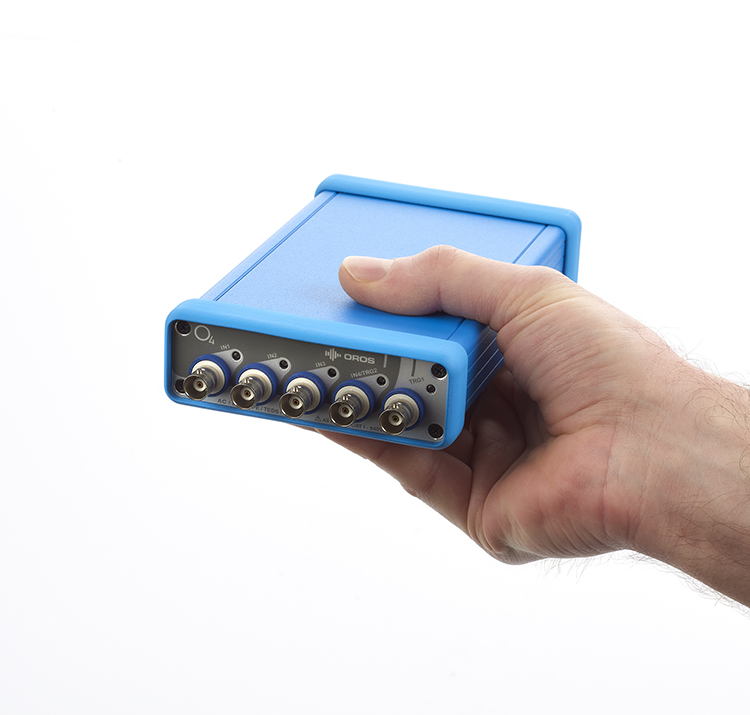
Time To Stop
Analyze a vibration failure before it occurs!
Find out why Time To Stop, a key vibration diagnostics tool, is so useful for vibration analysts!
The Time to Stop is a unique feature by OROS instruments that records the signal right before an event. In fact, in a mechanical failure, the root cause of the problem can be diagnosed from the vibration signal right before the trigger where it varies rapidly.
What is Time to Stop?
- Time to Stop is a unique feature by OROS systems that records the raw signal information generated before a trigger event is detected. Typically, during vibration monitoring, a sliding window of signal is continuously recorded, enabling the system to propose the information contained even before the event of interest occurs.
- There are various ways to define trigger events, but one of the most common conditions is whenever a scalar value (typically an Overall RMS) exceeds a certain threshold defined by the user.
- Once captured, the raw signal can be post-processed to extract the wealth of information it contains. Typically FFT on a rotating machine, but more often Order tracking analysis can be applied to reveal Bode, Polar and Orbit plots or any other displays allowing the portion of signal around the alarm to be analyzed.
- A practical application of this can be viewed in this tutorial video.
Why is Time to Stop so useful for vibration analysts?
- Focus your recording time on the right time slot: vibrational behavior can change very quickly in the couple of minutes preceding a failure, and it is the information contained in this specific time slot that you will need to extract.
- On rotating machines, increases in vibrational phenomena are rarely planned and not reproducible, and measurement sessions can be quite long. In these conditions, it is more efficient to set up a trigger to start recording at the right moment; this enables the user to save disk space by capturing only information that is pertinent.
- In parallel with the Time to Stop recording, real-time analyses can always be processed to maximize reactivity.
- Having less signal to analyze, and just the right one, enables the user to focus right away. The recorded signal can then be post-analyzed to obtain the final diagnosis as efficiently as possible.

Proximity
Paying the greatest attention to customers’ satisfaction, a dynamic experts’ team provides a highly responsive support: a reply from your dedicated contact is guaranteed within maximum 24 hours.

Reliability
Reliable data from the very first acquisition for high precision measurements.

By your side
To ensure the best use of our technology, a kick-off training is offered to maximize your profitability and efficiency of your new equipment.
Application-oriented solutions

Software suite

Systems and accessories
- 2 to 32 channels / system; can be cascaded and distributed up to 1000 channels
- Online & offline
- Handling any transducers
- Rugged and portable
- Stand-alone & remote monitoring modes
- Easy integration for test benches
Discover the full range of OROS noise and vibration instruments.





